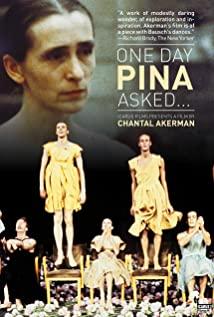The Spanish director Almodóvar's 2001 film Hable con ella (Hable con ella) tells the life and emotional experiences of two young men and women. The film opens with the male protagonist Benigno and Mark sitting next to each other in the theater, after which their lives meet fatefully. Benigno, a hospital nurse, has been taking care of Alicia, a vegetative girl he has a crush on for four years. Mark's girlfriend Lydia, a strong-looking female bullfighter, was injured in a bullfight and fell into a vegetative state. Mark met Benigno again while taking care of her. Two accidents, two women in a vegetative state, and two men in different love situations—the peculiar story line makes people think deeply. From this film, what we can read is not only the tragic love, but also the rising status of women can be interpreted through the way and perspective of the relationship between the sexes.
Director Almodovar never shies away from his homosexuality, which also implies that his film's perspective on women is not limited to the male-dominated ways of mainstream culture. While women spend most of the film sleeping, as if at the mercy of men, the serene physical beauty of the sleeping "them" can dominate men who love them. Young and beautiful ballerina Alicia is wary of her beauty when she is awake. Benigno's voyeurism of her is not only an appreciation, but according to Freud's theory, it also reflects an imaginary possession. Benigno follows her to her house and catches her in the shower, and Alicia reacts with alarm, fear, anger and shame. But when a woman falls into a deep sleep, loses her self-consciousness, and no longer regards herself as an aesthetic object, the female body is exposed to the male's sight in an undefended and innocent attitude, but the male surrenders to this beautiful body and dedicates Care and worship.
There is such a scene in the film. Mark was in the hospital corridor, attracted by a slightly open door. Through the crack of the door, he saw Alicia lying on the bed half naked, like a female figure commonly seen in classical oil paintings. The camera stands from Mark's point of view, allowing the audience to participate in the voyeurism of the female body. Alicia's physical posture and this voyeur are dominated by male appreciation, but Alicia's eyes are closed, and there is no active provocation. However, at this moment, Alicia suddenly opened her eyes slowly and looked directly at the camera (that is, Mark's line of sight). This was a frightening moment for Mark and the audience, full of the embarrassing feeling of being discovered by a voyeur. As the narrative of the film unfolds, we learn that the vegetative Alicia sometimes opens her eyes unconsciously and does not really "see" the outside world. From this shot of Alicia's eyes opening, it can be found that female nudity is no longer limited to a "landscape" (Berg's "The Way of Seeing"), an invitation and provocation to potential male audiences, but a provocative The ability of the male gaze. This provocation is unconscious, but it can challenge male voyeurism, cause panic, and can be seen as a mockery of the way men see.
In the film, Benigno failed to resist the temptation of a beautiful body and desecrated Alicia's body in the name of love. It is worth noting that this plot shows not the possession of women, but the sacrifice of women. Benigno's lust came from the silent film "Shrinking Lover" he watched, about a man who drank a potion and shrank, and reluctantly left his girlfriend. After the girlfriend found it, she searched everywhere, and finally found her boyfriend who had shrunk into a villain. After the girlfriend fell asleep, the boyfriend used his entire body to combine with his girlfriend, returned to the source of life, and gave his life for this. Therefore, what Benigno has born from this cannot be possessiveness, but the desire to sacrifice his body to love and to the body of a beautiful woman. However, we can expect that the secular world presupposes the possessive nature of men, so Benigno will definitely not be tolerated by law and human relations.
Another heroine of the film, Lydia, was set as a female bullfighter by the director. She has a strong side and a weak and helpless side. Her boyfriend Mark is both masculine and moved to tears at every turn. He also jumped out of the stereotypes set by traditional figures in mainstream media such as Hollywood.
At the beginning of the film, the dance that the two male protagonists watch together seems to be the motif of the fate of the women in the film: the two dancers close their eyes, blindly collide with the human world, and their body movements show strong sadness; a man pushes them away The overlapping tables and chairs on the stage protect them from harm. Men who serve women move men watching in the audience, which also shows the decline of men's status in this film. According to the film, it can be speculated that the essential source of this decline is one of love for "mother", and the other is due to the relationship between men and women - the mapping of the relationship between spirit and flesh. Benigno, whose childhood was shrouded in indulgence for his mother, is unsurprisingly moved by his devotion to returning to the mother in "The Shrinking Lover." Elsewhere, in a dance designed by Arisia's teacher, male soldiers are killed in battle, and rising from their bodies are women dressed in white, symbolizing their souls. Reminiscent of the end of the movie "Metropolis", women play a reconciling role that connects "heart" with "brain" and "hands", but in "Tell Her", women directly act as the soul that reconciles the body, so rise To the position of love and worship for men.
"Talking to her" is not just talking to a sleeping woman trying to wake her up, but also talking to a man's own soul, arousing the tender emotions and deep love contained in men. At the end of the film, returning to the theater, a group of male dancers held up a female dancer, and then many couples of men and women filed out from one side of the stage with music, with neat and happy movements. Mark turned his head and smiled at Alicia, who was sober in the back row. After death, a new love was born. The film ends with this silent exchange.
View more about Talk to Her reviews











